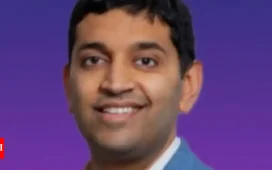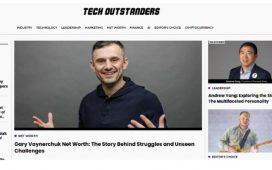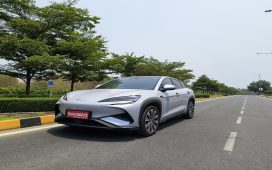ManageEngine, an IT product company from the stable of Zoho Corporation, aspires to be a $10 billion technology company in five years while remaining focused on innovation and R&D. Its CEO Rajesh Ganesan spoke to Dipak Mondal on AI, innovation and growth targets. An excerpt:
How is ManageEngine different from IT services firms like Infosys or TCS?
ManageEngine is a product company (like Microsoft or Google), building tools for businesses to manage IT operations, cybersecurity, and endpoints. Services firms like Infosys focus on custom solutions or integrating third-party tools. ManageEngine’s products are used directly by enterprises or through partners (e.g., banks use its endpoint security agent to protect devices).
What is your approach to R&D?
Zoho invests heavily in R&D, building proprietary frameworks (e.g., programming language Deluge) and infrastructure (self-run global data centers). We prioritise long-term bets over short-term gains, with R&D teams in tier-3 Indian cities (eg, Tenkasi and Tirunelveli in Tamil Nadu) to tap local talent and foster regional ecosystems. Failed products are common, but successes like Zoho CRM and ManageEngine’s IT tools drive growth.
How is AI impacting your business?
AI augments workflows (e.g, generating code snippets, customer support responses) but doesn’t replace jobs. Zoho uses AI cautiously, avoiding sensitive data exposure. For instance, AI-generated videos of executives save time but lack originality for complex tasks. The focus remains on human-AI collaboration, not workforce reduction.
Zoho has survived multiple crises (eg, the 2001 dot-com crash, 2008 financial crisis) by diversifying products and markets. For example, after telecom infrastructure demand collapsed in 2001, Zoho pivoted to serve smaller businesses with ManageEngine. We plan for extremes: best-case growth (40% YoY) and worst-case scenarios (zero revenue), ensuring resilience without layoffs.
What’s your view on India’s startup ecosystem’s focus mainly on tried and tested business models and a risk aversion towards tech innovation?
That mindset is important. The problem is, we don’t accept failure. That’s what holds us back. We tend to copy what appears to be most successful. You need to take a bold, deep dive and say, “I want to do this because I believe in it”—while also knowing it might fail. You can’t expect the government to drive this change alone. It has to come from the broader ecosystem—private players, society at large. Zoho’s success stems from embracing failure (for example, shutting down underperforming products). To spur innovation, India needs ecosystems that support long-term R&D and accept risk. Zoho invests in startups (e.g., SignalChip for semiconductors, V-Titan for medical devices) and runs subsidiaries in non-IT sectors (power tools).
Do you have plans to go public?
No. We intend to remain private to retain freedom from shareholder pressures. The philosophy centres on prioritizing customers and employees over quarterly financial targets. The company maintains a financial buffer to survive three years without revenue while protecting employee jobs and salaries. This approach reflects their belief in mutual loyalty between the company and its workforce.
What are ManageEngine’s growth plans?
We expect to reach $ 1billion by next year. We have a target of achieving $10 billion in the next five years because the potential is so high. We are already present in 30 locations in North America, Europe, and Latin America. We plan to go to newer markets, invest in new ways of doing business, and new models. We plan to enhance partnerships, localise solutions, and build trust as a global Indian brand.
How does Zoho address global challenges like US tariffs or visa policies?
Tariffs (currently targeting physical goods) haven’t directly impacted software sales, but customer caution in tariff-affected industries (e.g., manufacturing) slows deals. H-1B visa approvals remain stable, but geopolitical uncertainty lingers. The US contributes 35% of ManageEngine’s revenue, with growth balancing across other regions.
What advice do you have for aspiring engineers in the AI era?
Focus on fundamentals, not shortcuts. Embrace hard work over chasing trends. AI is a tool, not a replacement—human creativity and problem-solving remain irreplaceable. Zoho hires for foundational skills, not just tech expertise, and encourages teams to innovate without fear of failure.











